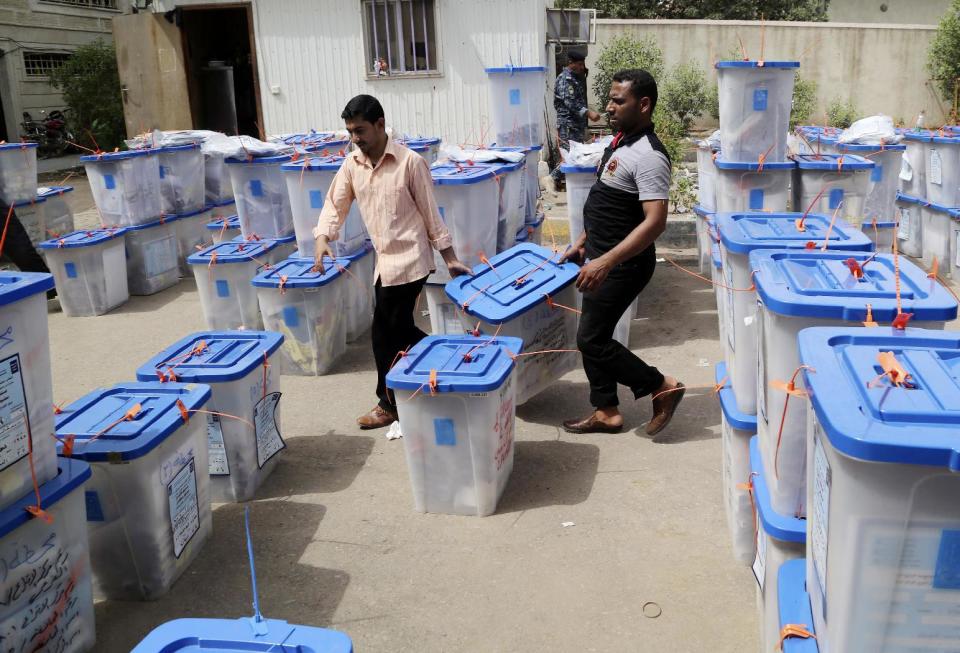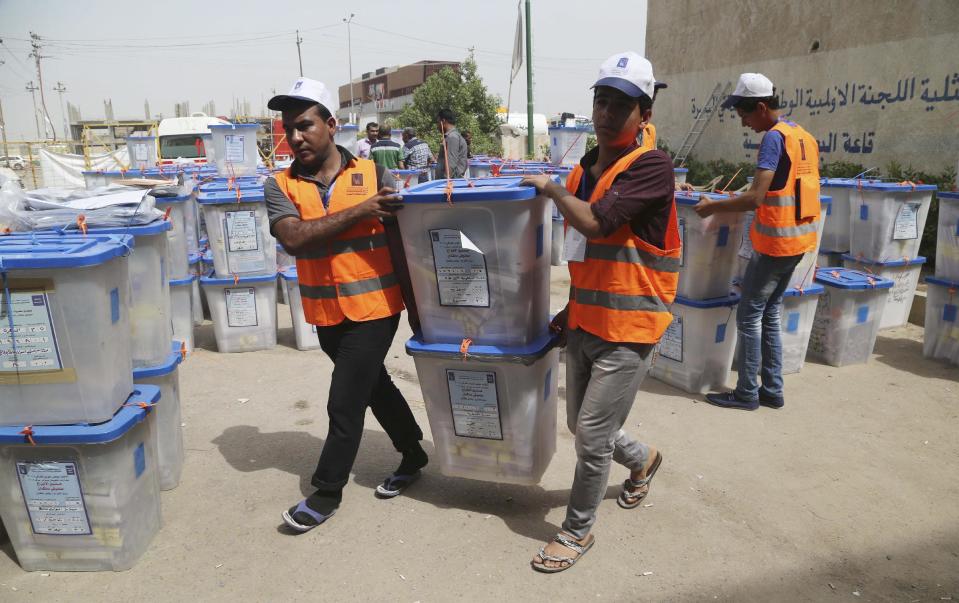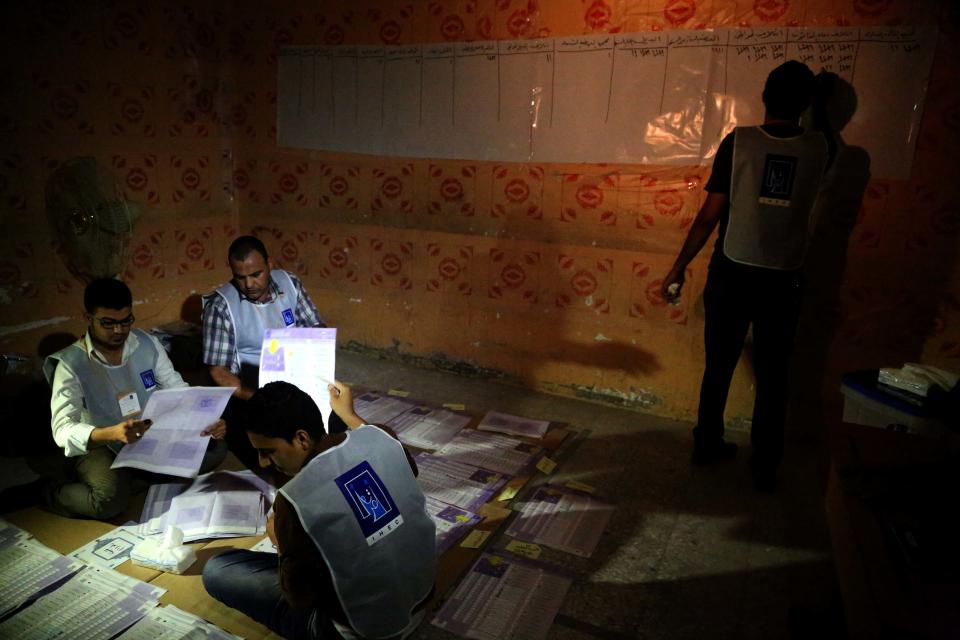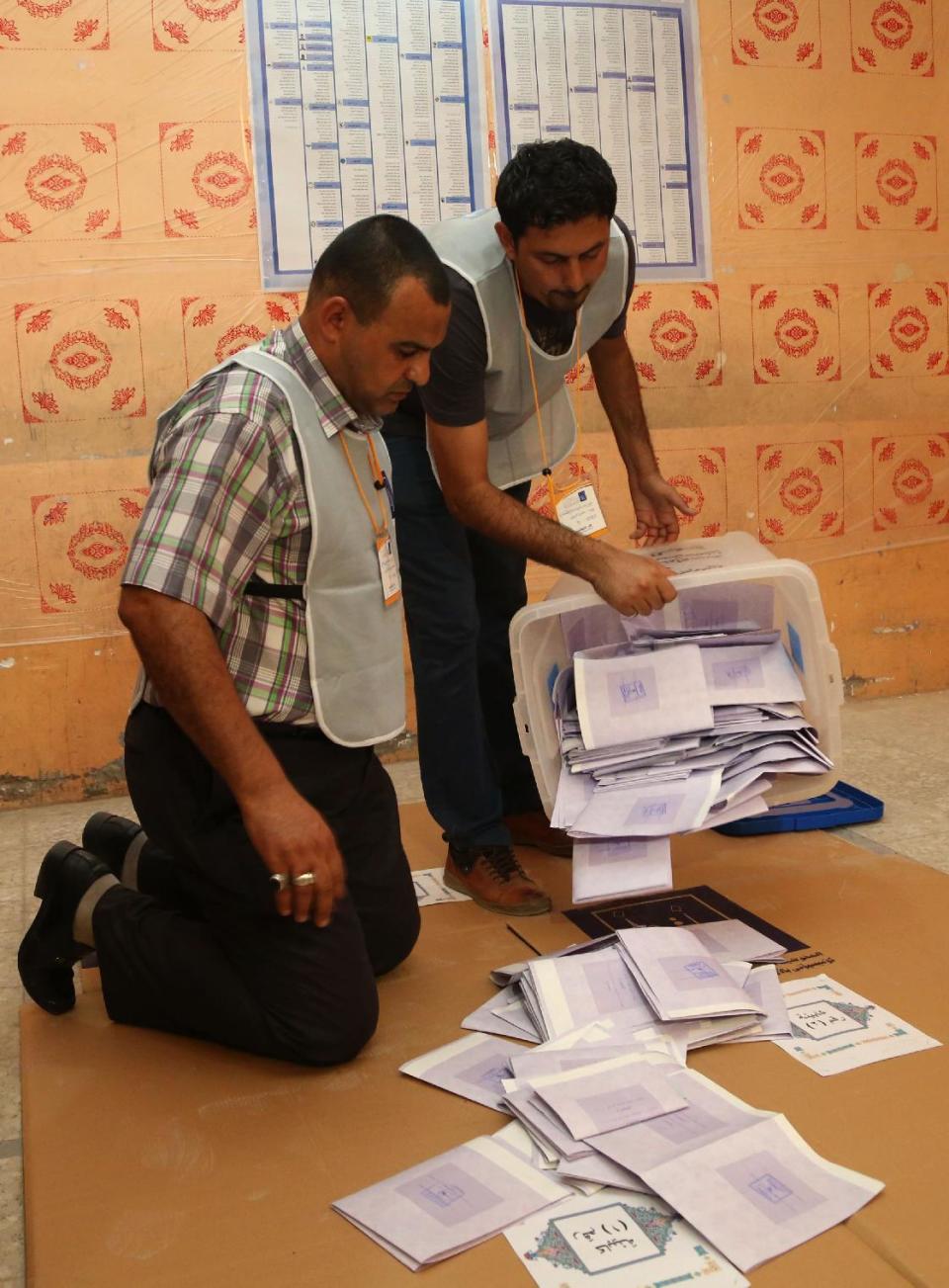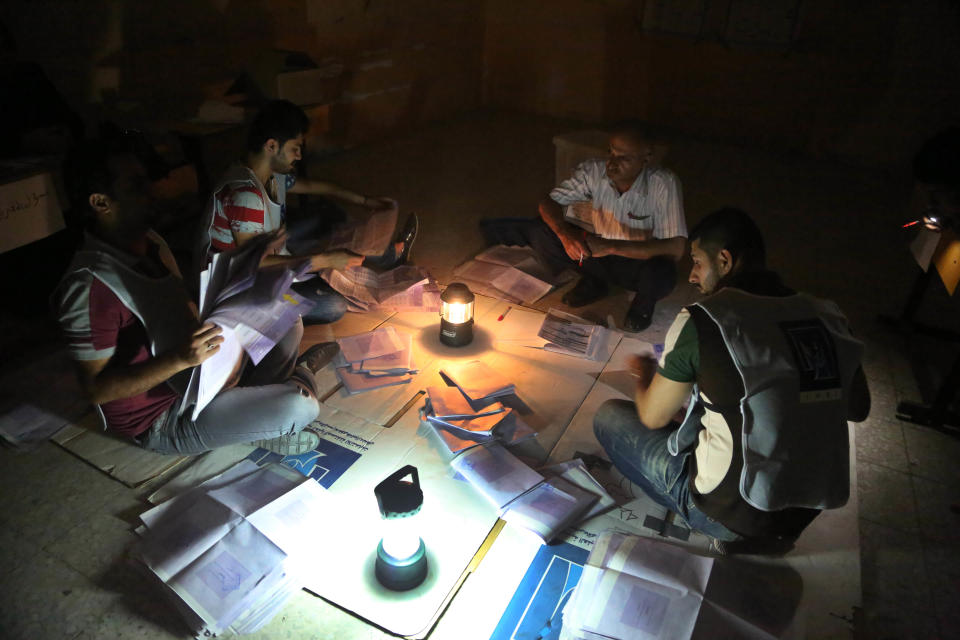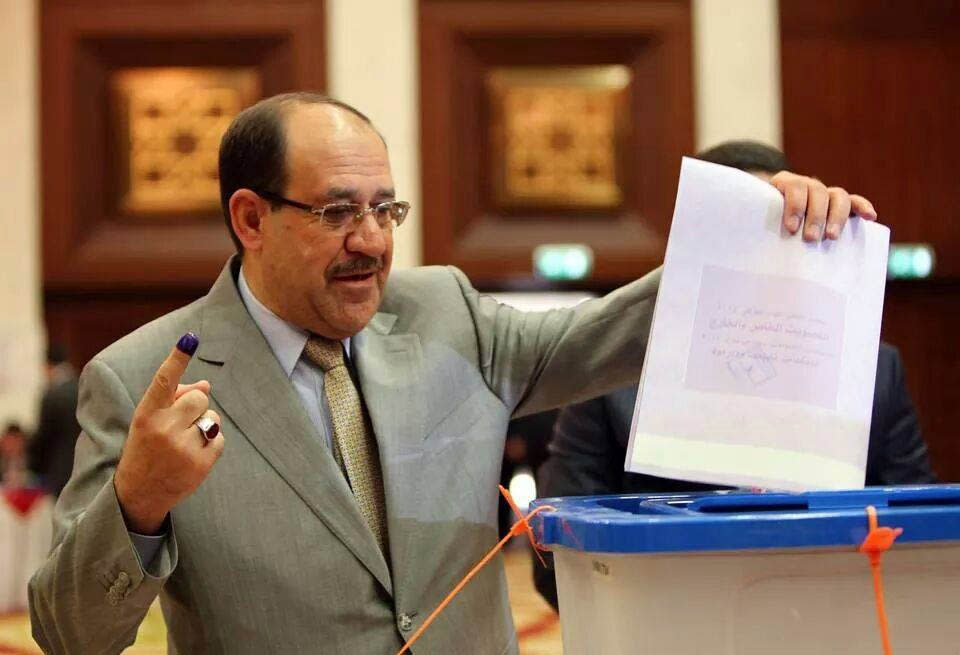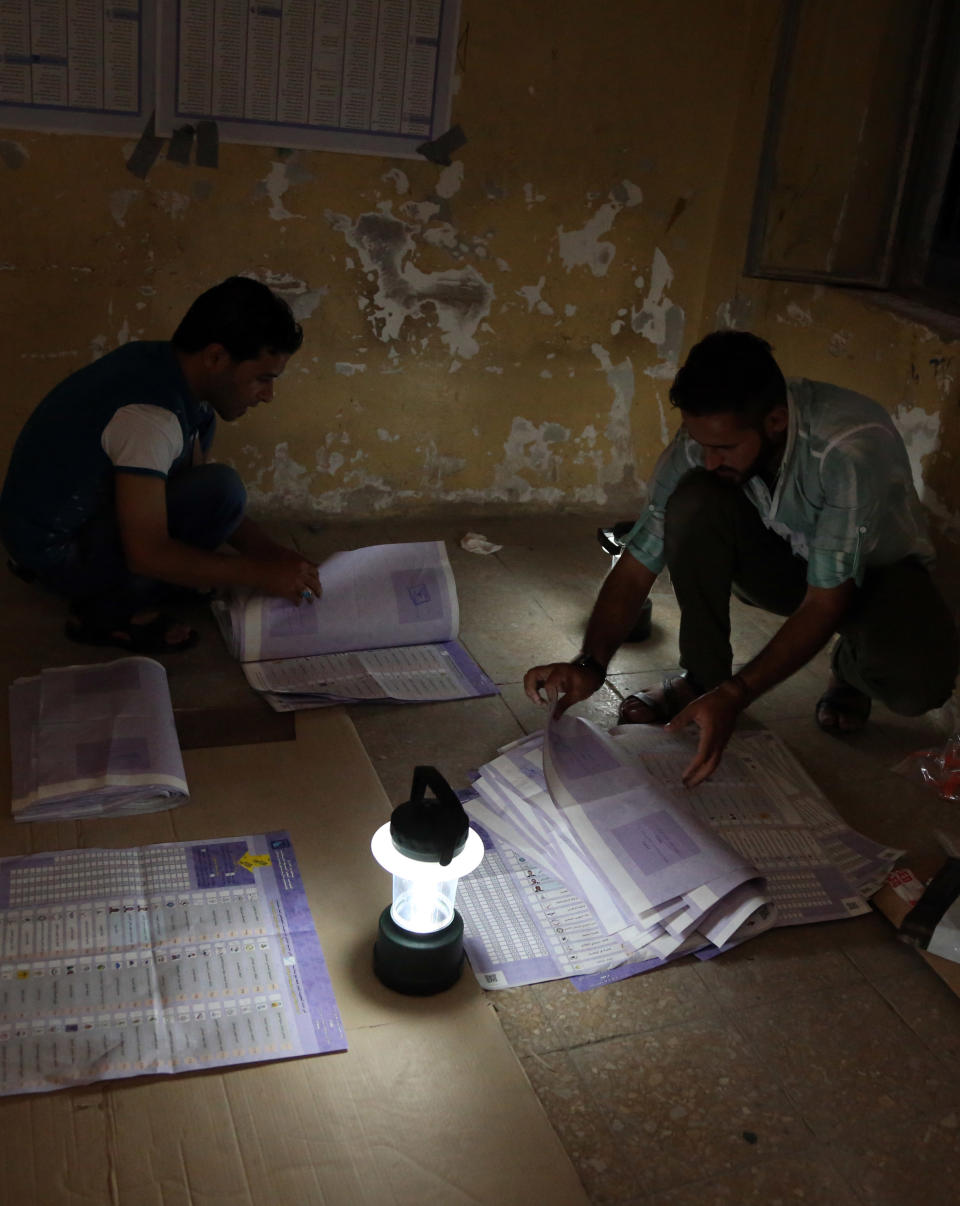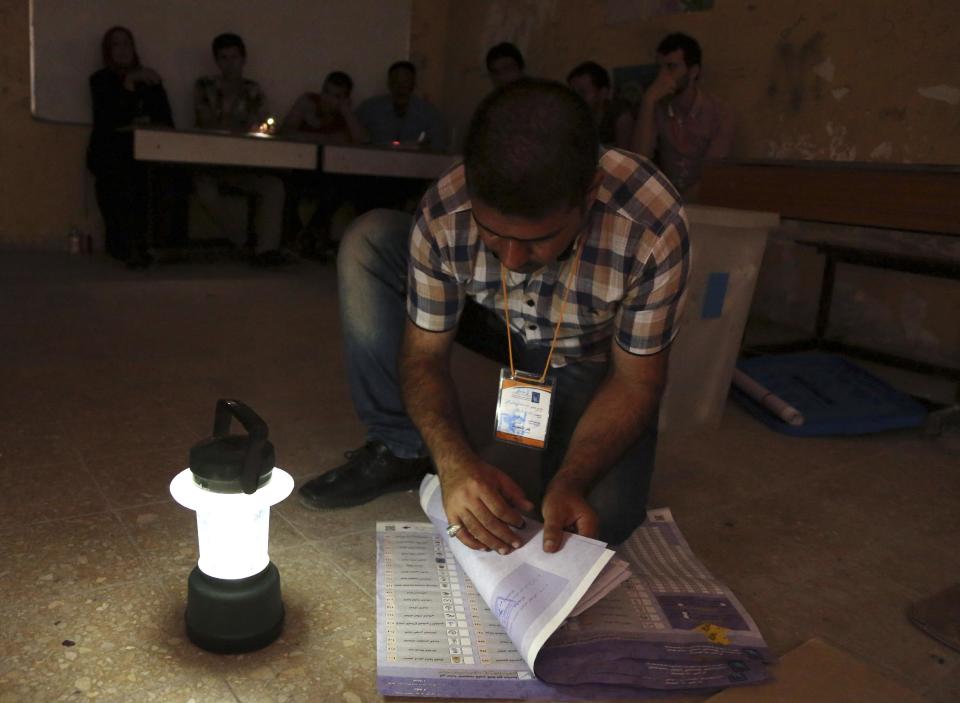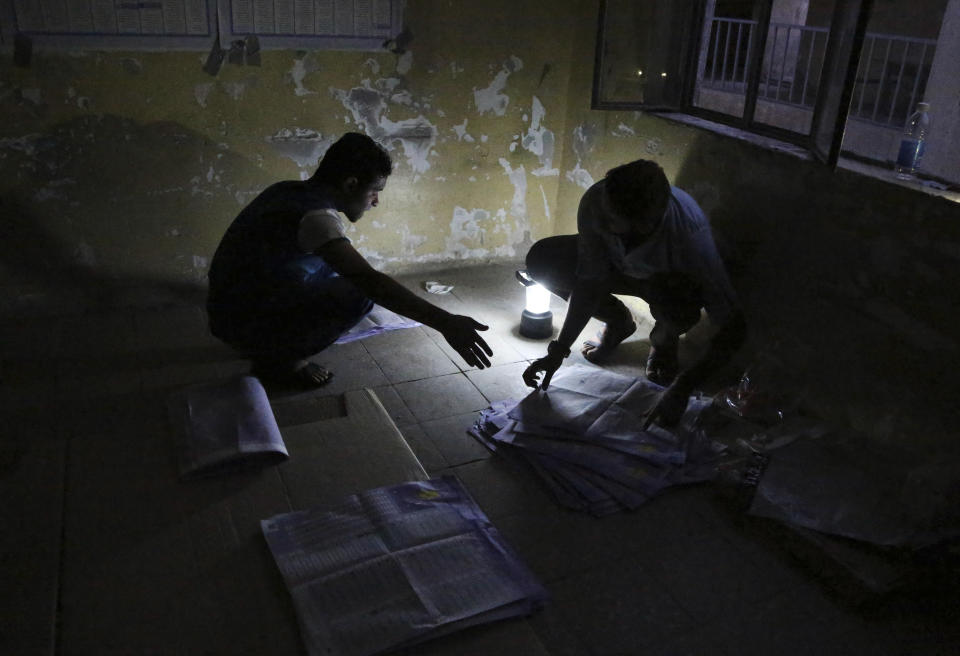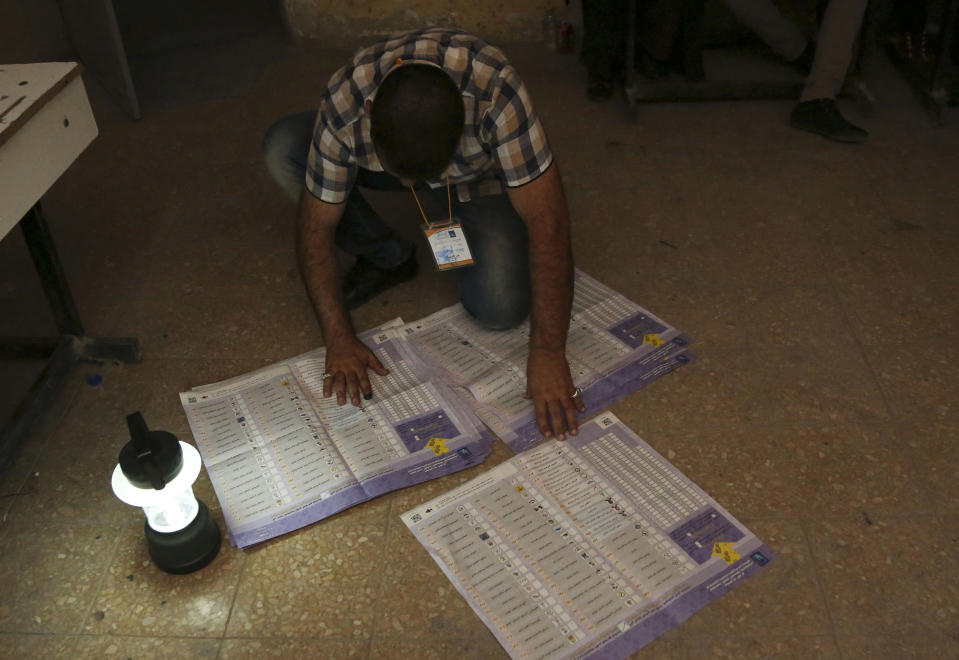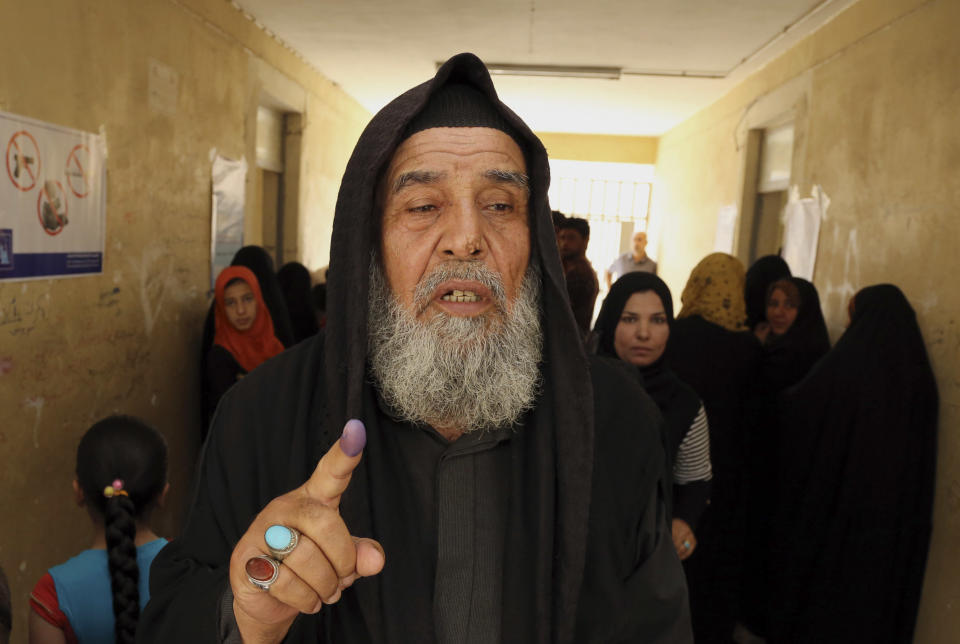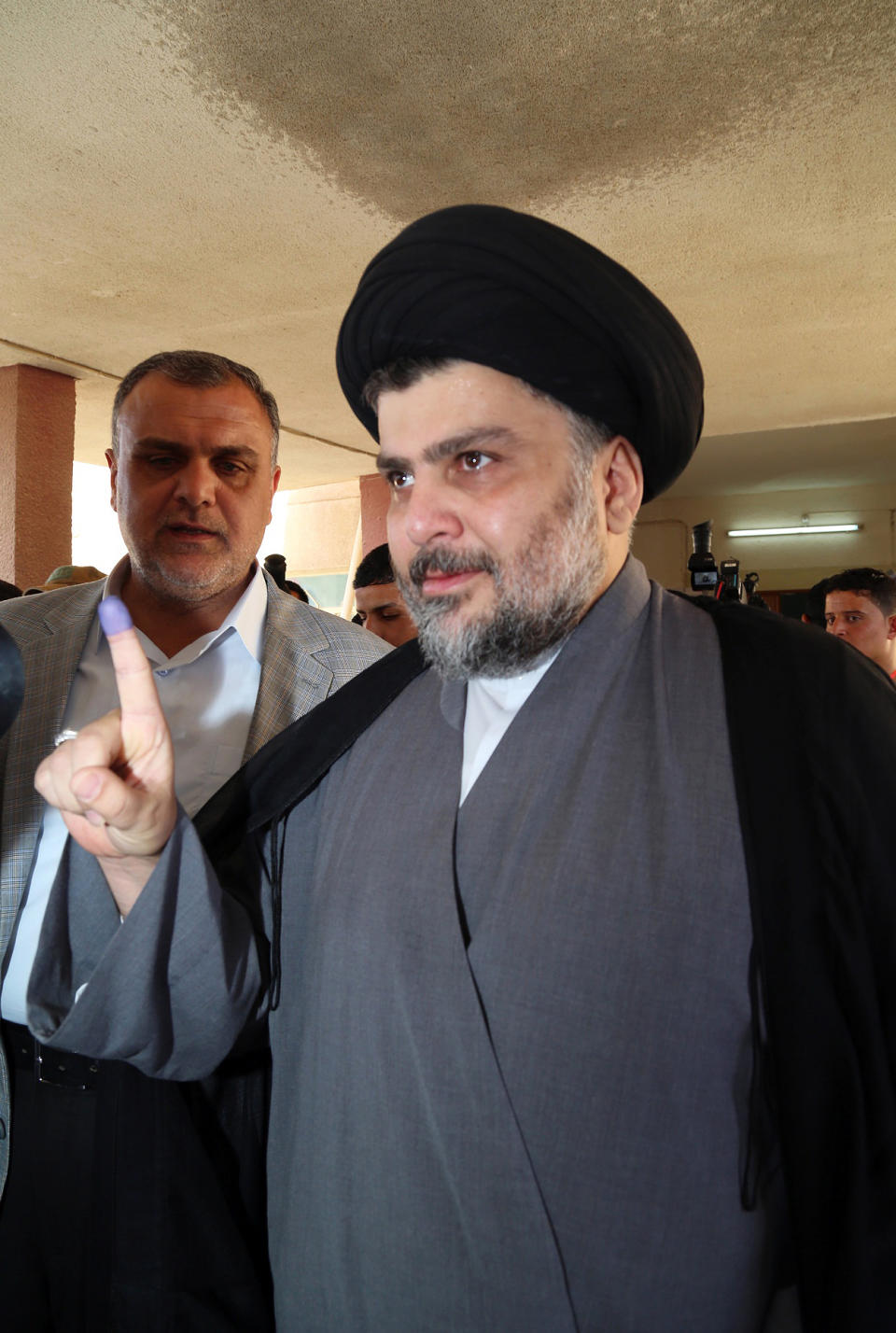Iraq: Al-Maliki says vote 'slap' to terrorism
BAGHDAD (AP) — Iraq's prime minister on Thursday hailed a high turnout in nationwide elections as a "slap in the face of terrorism" as the United Nations announced that 750 Iraqis were killed in violence in April, the highest monthly death toll this year.
Nouri al-Maliki also invited his critics, including onetime Shiite allies, to put the bickering and rivalry of Wednesday's parliamentary election behind them and join him in a majority government.
His remarks reflected confidence that he would get a third term in office following the election — Iraq's first nationwide election since U.S. troops withdrew in 2011 — and retain the post he has held since 2006.
The turnout from among Iraq's 22 million eligible voters was estimated to have exceeded 60 percent, al-Maliki said. In Anbar province, where al-Qaida-inspired militants control some parts, the turnout was around 50 percent, he added.
Election spokesman Safaa al-Moussawi confirmed that the turnout was about 60 percent, with the northern Kurdish province of Irbil claiming top spot with 90 percent. Anbar, a Sunni province where government forces are battling Islamic militants, showed the lowest turnout, with between 37 and 40 percent of registered voters casting ballots, he said.
Al-Maliki's upbeat comments contrasted with figures released by the U.N.'s mission in Iraq, or UNAMI, just hours later that underlined the dramatic rise in violence in Iraq. They showed that 610 civilians and 140 members of the security forces were killed in April, while UNAMI added that 1,541 more Iraqis, including 1,311 civilians, were wounded.
The capital, Baghdad, was the worst affected, with 252 people killed. The northern province of Ninevah, home to the city of Mosul, came in second with 119 killed, followed by Diyala province northeast of Baghdad with 71 killed.
The figures excluded deaths in Anbar province.
This year's previous highest death toll was January, when 733 Iraqis were killed. Last year, the death toll climbed to its highest levels since the worst of the sectarian strife in 2006 and 2007. The U.N. says 8,868 people were killed in 2013,
The 2011 withdrawal of U.S. forces, which had for eight years often acted as a buffer between Shiites and Sunnis, is thought to have contributed to the rise in violence in addition to the use of excessive deadly force by the Shiite-led security forces against Sunni protesters.
Al-Maliki's State of Law bloc was widely expected to win the most seats in the 328-member parliament but fall short of a majority — meaning he would have to cobble together a coalition, an undertaking that took nine months after the last elections, in 2010.
He declined to speculate on how his bloc fared in the election, saying he would leave the election commission to announce the results. The bloc won 89 seats in the last election in 2010.
"This election defeated al-Qaida and the ISIL," al-Maliki said, referring to the Islamic State in Iraq and the Levant, a splinter al-Qaida group whose fighters are battling government security forces in Anbar. "It was a slap in the face of terrorism."
Some of al-Maliki's former Shiite backers have accused him of trying to amass power for himself, but many in the majority sect see no alternative to the 63-year-old prime minister. He enjoys crucial support of neighboring powerhouse Iran, and there are speculations he could use that backing to push discontented Shiite factions into supporting his leadership for another term.
However, many Sunni Arabs distrust him and see him as too close to Shiite Iran, while Kurds are irked by what they view as his meddling in the affairs of their self-ruled region in northern Iraq.
Also Thursday, al-Maliki said he would open talks with all blocs but would not be searching for a broad-based coalition as has been the case the past decade, when governments included Sunnis, Shiites and Kurds.
A majority government that can operate effectively is what he'll be looking for, he said. A "national unity" government is an "experiment that we will use all our energy and effort not to repeat," he said.
___
Associated Press writer Sinan Salaheddin contributed to this report.
